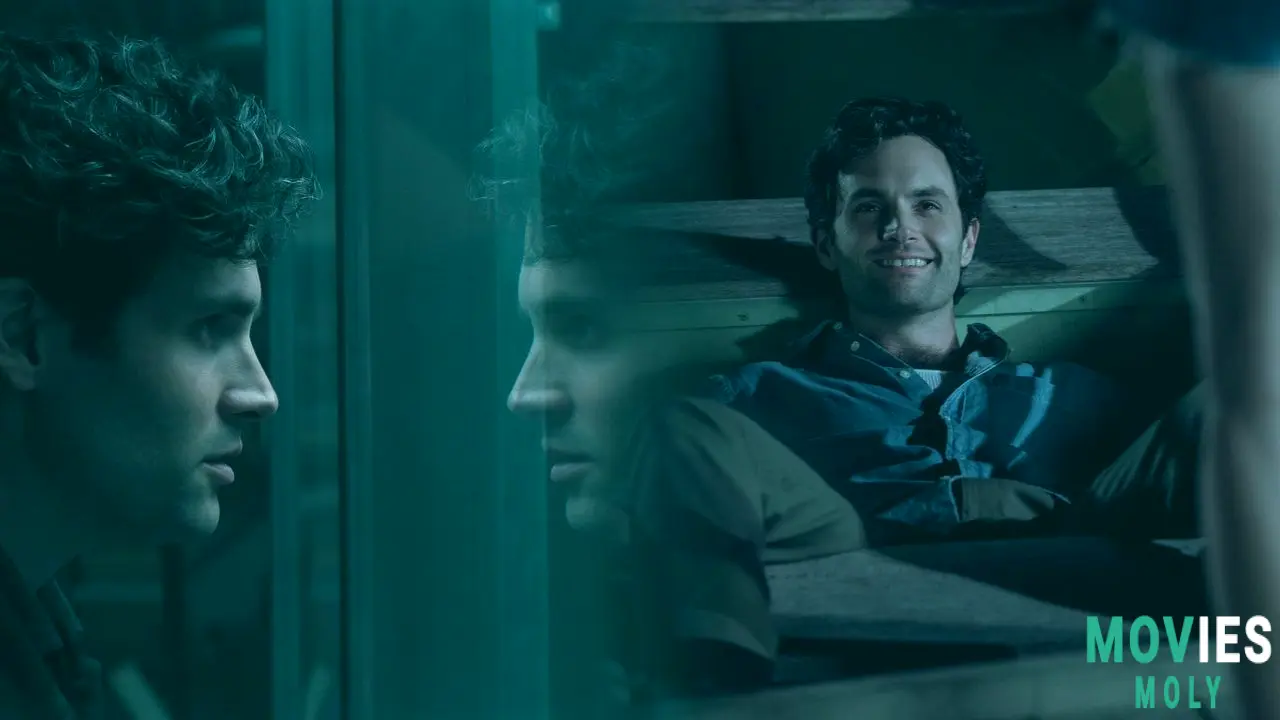By channeling its signature blend of dark romance, psychological thriller, and genre deconstruction, Netflix’s You closes its five-season run with a finale that doesn’t just punish its protagonist—it forces viewers to reckon with their own complicity. And somehow, it does this while giving Penn Badgley one last blood-soaked, voice-over-driven masterpiece to work with.
The ending that showrunners crafted from emotional truth and creative courageAfter a tumultuous journey through multiple cities, identities, and deadly obsessions, Joe Goldberg (Badgley) finds himself back where it all began—New York City. But this time, he’s not the scrappy bookseller we met in Season 1. Now a billionaire through his marriage to Kate Lockwood (Charlotte Ritchie), Joe is living a façade of perfection. A loving husband, a doting father to his son Henry, and a famous philanthropist. Or so he wants everyone to believe.
“He’s fooling himself, but he’s doing a pretty good job, as he always does,” Badgley says. And that’s the crux of Season 5. How long can Joe keep up the illusion? And more importantly, can wealth and privilege tame a sociopath whose entire identity is built on manipulation, control, and — let’s be real — murder?
Co-showrunners Michael Foley and Justin Lo didn’t just wrestle with these questions. They turned them into a narrative full circle, one that brings Joe back to the bookstore (Mooney’s), back to the girls he silenced, and back to the cage — metaphorical and literal — that he thought he’d escaped.
Joe’s final descent into uncensored horror exposes the show’s sharpest commentary
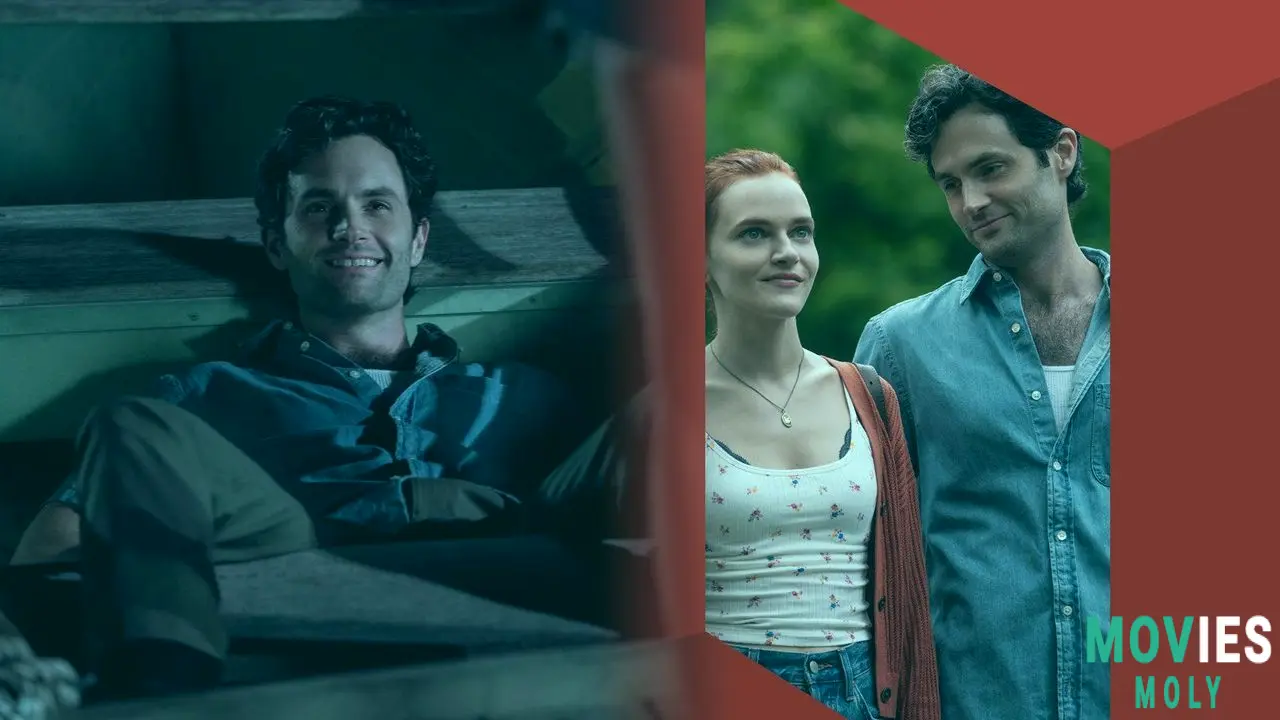
What makes the finale of You so satisfying isn’t just that Joe gets trapped — again — in a concrete cell beneath a bookstore. It’s how he gets there. And what he becomes in the process.
After a gambit involving a fake persona (Bronte, aka Louise), a failed surveillance sting, and a deadly alliance of Kate, Marienne (Tati Gabrielle), and Nadia (Amy-Leigh Hickman), Joe is finally outplayed by the women who refuse to let him rewrite their stories. They lure him into a trap, record his confessions, and turn the tables on the man who built his life around controlling narratives.
But instead of dying as they might have once imagined, Joe lives — and not just lives, but lives in utter humiliation and isolation. Shot in the genitals during a last-ditch violent encounter with Louise, Joe is arrested. Handcuffed. Defanged. Literally and figuratively.
“We wanted him to be at his most horrific,” Foley says. “Penn [Badgley] said, ‘Let’s make him as horrific and monstrous as possible.’” And that’s what we get — a final sequence in the woods where Joe’s bloodied desperation claws for dominance one last time, only to be silenced by a shot that saves the audience from witnessing another step into necro-heroism. Instead, it gives us nuance. Punishment. Closure.”
The final voice-over flips the target — and turns the audience into 'You'
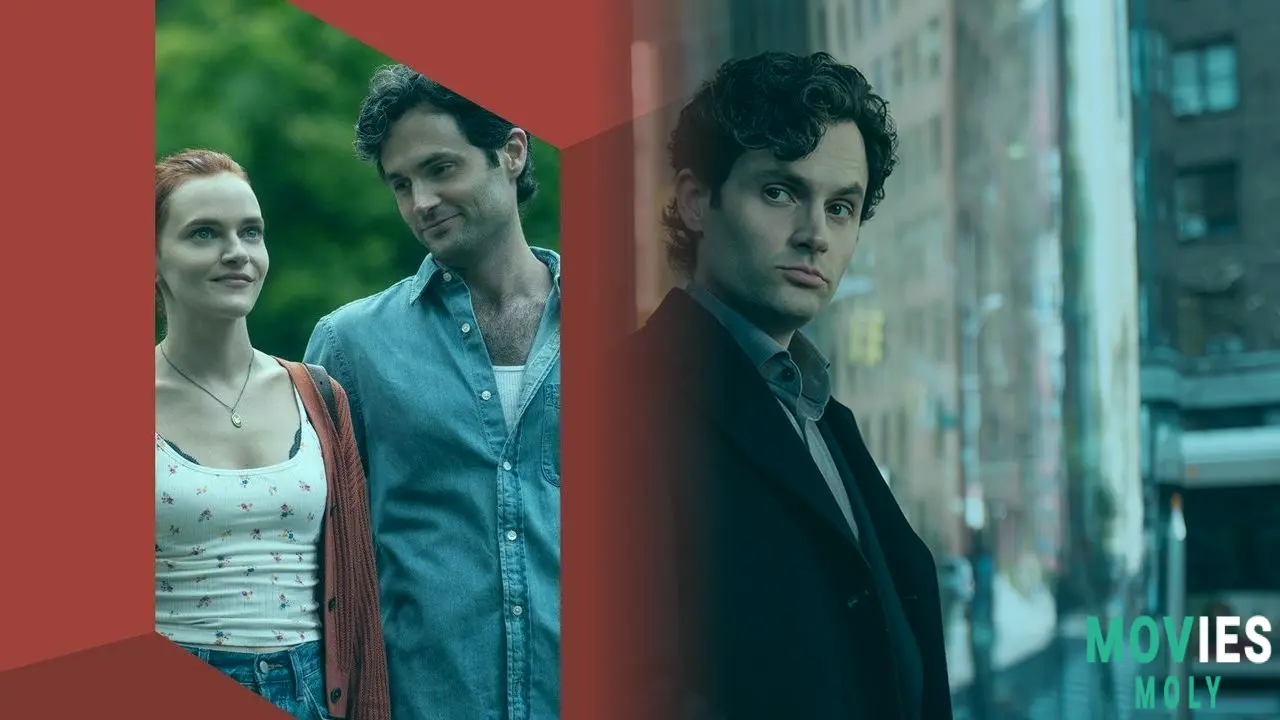
The ultimate twist of You isn’t that Joe ends up in prison. It’s that he’s still speaking — still narrating — still trying to manipulate. But now, he’s aware. And he’s angry.
“Why am I in a cage,” he wonders aloud, “when these crazies write all these depraved things they want me to do to them? Maybe the problem isn’t me. Maybe it’s You.”
It’s a moment of pure meta genius. A final break of the fourth wall that doesn’t feel cheap, but necessary. After five seasons of watching Joe gaslight, rationalize, and romanticize his way through murder and mayhem, the show lets him turn the mirror on us — the audience. The ones who blinked at the charm, who laughed at the wit, who somehow ended up rooting for a maniac just because he quoted Shakespeare and loved books.
“There was a time we asked the audience to stick with Joe even after he killed Beck,” says Lo. “This is us pulling a full circle. This is us asking—what have we been complicit in? Who have we been buying into?”
More than a thriller — ‘You’ became a cultural probe into fandom and fixation
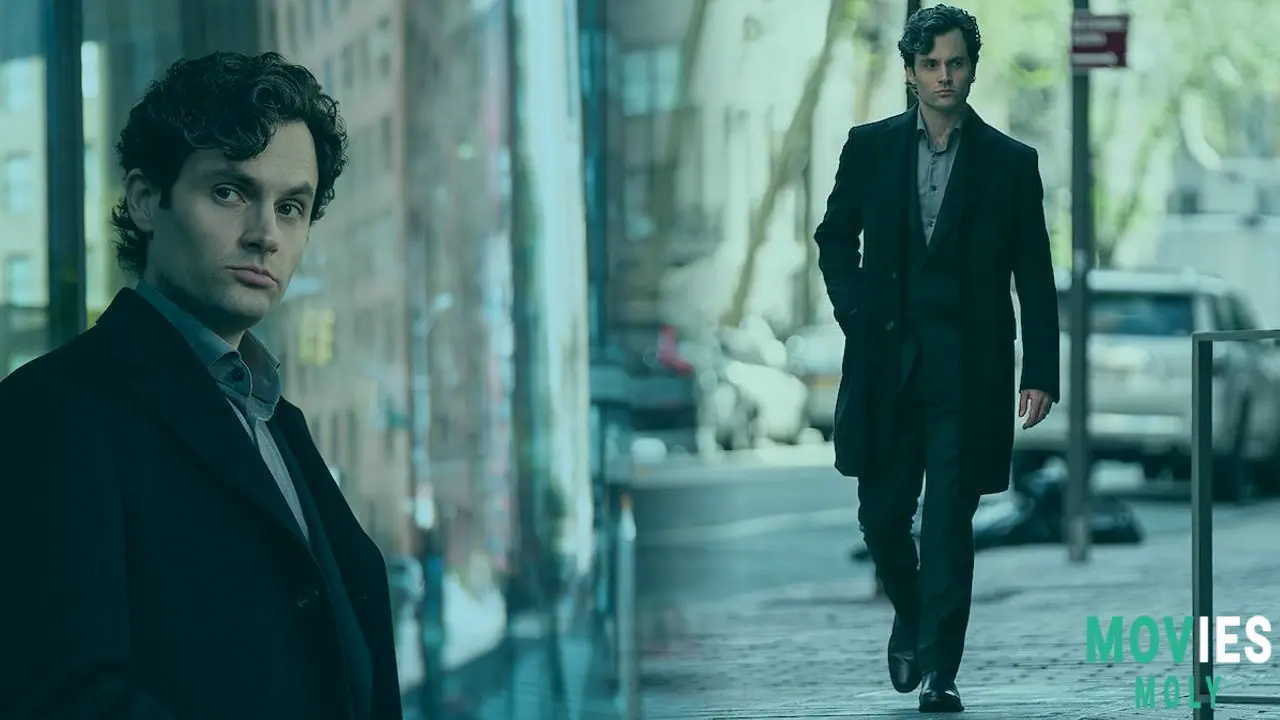
What started as a lurid Lifetime series about a creepy bookstore clerk turned into one of the sharpest cultural commentaries of the past decade. You tore through tropes of romantic fiction, deconstructed toxic masculinity, and mined the psychology of obsession — all while dressing it up in slick, bingeable storytelling.
And through it all, Penn Badgley gave us a performance that evolved with the material. “I can’t do this man anymore,” he says about Joe. But until the end, he made sure we saw not just the monster, but the myth. Not just the violence, but the veneer. Not just Joe, but what Joe thinks he is — and what he wants us to think he is.
Final thoughts: ‘You’ doesn’t just end — it echoes into our cultural consciousness
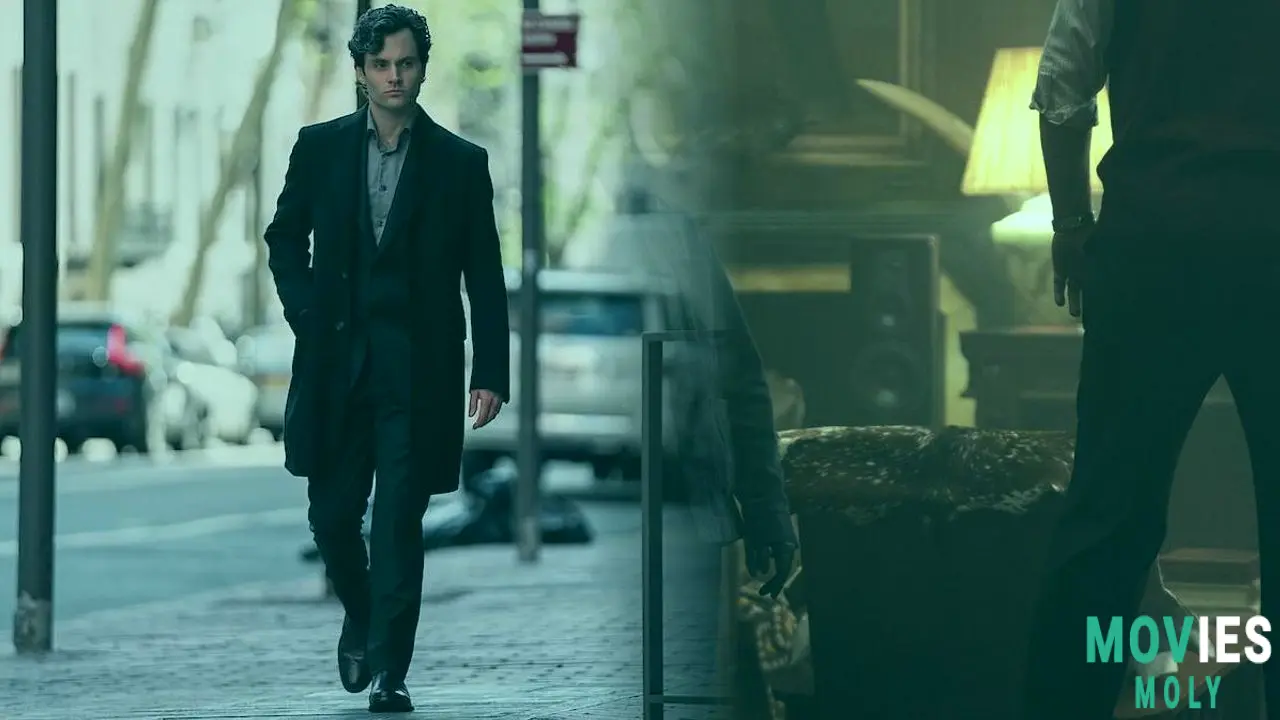
The final season of You may not leave Joe Goldberg alive and free, but it does leave him relevant. And that’s more than most shows can say. By letting Joe finish with a voice that's still seductive but now squarely self-aware, the writers gave us a parting gift: a protagonist who never truly loses his audience… until he does.
And when that happens, you're left with a question — one that doesn't just apply to Joe, but to all of us who watched, liked, and shared his story: Maybe the problem isn’t him. Maybe it’s You.

